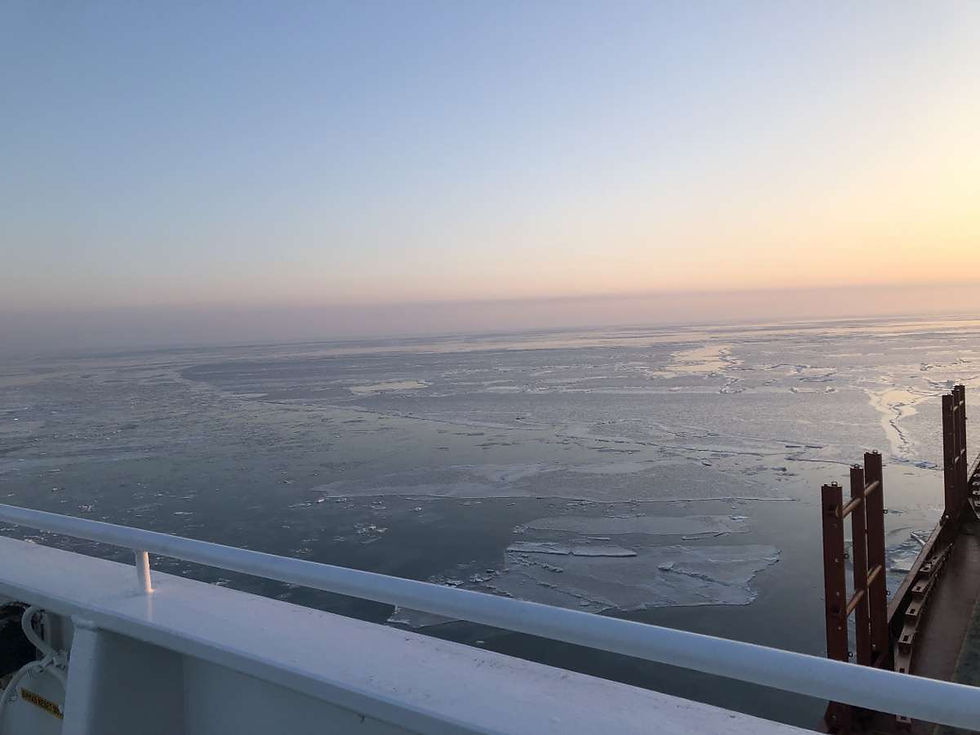Delay at loading port due to Fog-whether laytime runs
- Apr 4, 2023
- 4 min read

In this arbitration, the dispute turned on a narrow issue: whether laytime ran during some periods of fog when the vessel was waiting at the roads in Constantza, and the port was reported as closed. This, in turn, determined when demurrage began as claimed by the owners and denied by the charterers. Consequently, the parties referred their dispute to a sole arbitrator in London, and both parties were legally represented.
The parties disagreed on the situation at the port during some periods. Owners said that other ships loaded their cargo during these periods. Charterers disagreed on the said cargo operations’ relevance, including the charter party’s terms on this issue. Therefore, the main points of difference were related to the meaning and effect of “weather working days”- whether the ship would be able to load had she been at berth during the relevant disputed periods, and the effect of the words “ laytime shall be interrupted during periods of adverse weather” as found in a separately printed clause. For the latter, charterers argued that it provided an answer to the dispute, as these words widened the scope of “ weather working day”.
Next, the parties disagreed on whether the ship could load had she been at berth, how she would load her cargo and for how long. The owners relied on official records of the Constantza port authority, showing that other vessels were loading during said periods. Charterers disputed the data and provided evidence from the Naval Authority to support that the port had suspended navigation during the disputed periods under fog. For the latter, owners asserted it dealt with navigation, not cargo operations.
On the evidence, there was no doubt that fog and poor visibility prevailed at the port during the disputed periods. This was reported by the master in the SOF, including the statement from the Naval authorities as signed by the harbourmaster and the navigation department. In addition, the charterers’ agent’s email to the parties referred to cargo operations being suspended. One of the other vessels stopped loading and waited for weather improvement, which the changes in the declared departure time (ETD) proved. Also, barges were likely not allowed to manoeuvre around the vessel under fog and poor visibility and carry out cargo operations.
In essence, the evidence was not satisfactory to calculate the exact periods that the vessel could load during these disputed periods. Thus, the tribunal could not award the full demurrage claimed by the owners under the “weather working days” regime.
Then, the tribunal considered the effect of the separate clause referred to “adverse weather”. The charterers argued that since there was “adverse weather”, it did not matter if cargo operations were carried out. Adverse weather certainly includes weather that affects navigation in the port. The owners said the clause did not apply as fog did not affect navigation inside the port because other ships proceeded to the berth. So the burden was on the charterers to show an exception to laytime, and they failed to do so.
The tribunal was satisfied that prima facie, the certificate from the Naval authority established that the fog suspended the movement of vessels in and out of port. Regarding the interpretation of the “adverse weather”, the tribunal stated that neither party referred to any precedents and assumed there were no precedents or reported arbitration decisions. The charterers referred to an earlier version of the contract to interpret the new version. However, the tribunal did not find it decisive or permissible to look at an earlier version of a contract to interpret the current one and felt bound to treat the recent clause on its wording. Also, the tribunal said that bad weather is not enough to trigger the clause as the charterers had argued. If adverse meant bad, it would be difficult to draw a line between bad and good weather. ”Adverse” imports a relative concept: the test was whether the weather stopped vessels proceeding to their berths after a valid NOR was tendered. Thus, the tribunal had to consider if other ships could move to the berth at the relevant times.
Of importance, the owners submitted no clear evidence of when the other ships left their anchorages and went alongside at their berths, despite that the tribunal asked the parties to make further submissions on this point. The data only showed when the vessels were alongside. Without any other evidence, the tribunal found it likely that the vessels proceeded to their berths during periods when there was no suspension of the movement. According to its findings, there was evidence that the other vessel’s movements (as referred to by the owners) were suspended and no evidence of such movements during those periods. Since “adverse weather” interrupts laytime running during the claim periods, the owners’ claim failed.
Award accordingly.
Comment: In London Arbitration 10/02, the tribunal decided a similar issue in the owners’ favour as the evidence indicated that fog did not interrupt the loading operations. However, this case is different: due to the unsatisfactory nature of the evidence and the applicable terms (the “adverse weather”).
In some other settled cases, the agent put a clear remark in the SOF to avoid ambiguity ” Navigation was suspended, but the operation continued at berth, or the operation was not continued at berth (if that is the case)”.
Note: this website removes the names of the parties, the tribunal and their representatives. No other information can be provided for this award.


